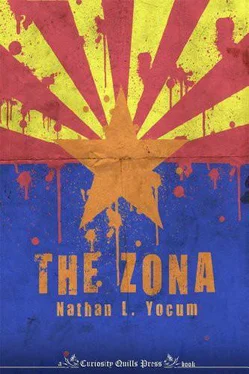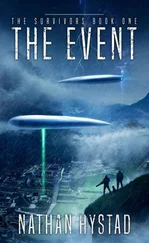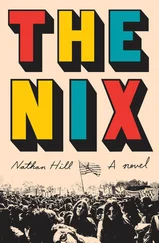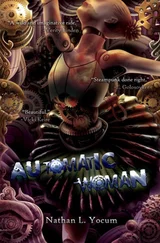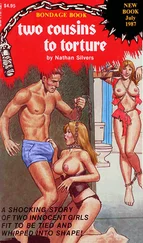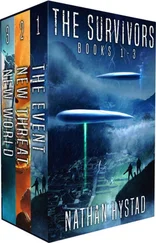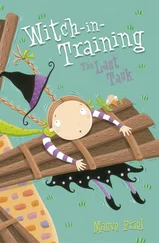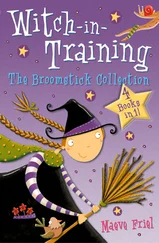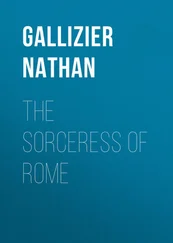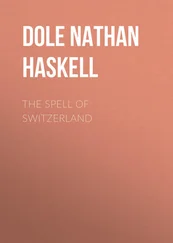Leonard flung himself to the street, skinning his knees and palms. The gray runners twisted in a marionette dance as rifle rounds tore through their bodies. The dust cloud hung in the air as the last fell dead. The world was silent except for the ringing in Leonard’s ears, a ringing that would never completely go away. Leonard raised his head; one of the Guards prodded him with a rifle muzzle.
“Show us your script, kid.”
Leonard rolled onto his back and placed a bloody hand on his shirt.
“Lead Group Two number 2305, don’t shoot!” Leonard yelled between deep jagged breaths. He looked into the guard’s yellow blue eyes. A thoughtful look took to the guard’s face.
“We ain’t shooting none but Vegas and Cali folk today, kid. Don’t you worry.”
The guard pulled Leonard to his feet.
“Alright, you’re going to run south. That way.” He pointed. “Don’t stop, don’t scavenge. Utah just gave us the Fourth Horseman and if the wind shifts at all we’re all going to die slow and ugly.”
Leonard got to his feet and ran.
“The wind didn’t shift that day. I guess you could say God was smiling on us. Couldn’t you, Lead?” Terence said with a bitter smile.
Lead looked into the fire. In his mind the survivors slowly ran past him, the dust and ash of their homes streaming behind them.
“Why did we kill them? They were fugees like us. I don’t remember any of them putting up a fight.” Lead said.
Terence’s grin left his face. “We killed them because we were told it was the right thing to do. We were told we had a debt to God that needed repaying. We killed them because killing them was supposed to be the answer.”
Terence pushed a bark plate of prickly pears next to the fire. Lead watched licking flames loosen and split their skin. Terence pulled the plate back and peeled one of the fruit.
“God’s doing or not, man’s wrath ruled the day, and I pray each night never to see another day like it.”
The ex-Preachers ate in the silence of the desert.
VII. The story of Terence and how he came to the Zona
Terence and Lead spent nights crossing the desert. The moon was at the full end of its cycle. The clouds remained in the east. The night was illuminated by the lunar orb and stars and the occasional western lightning. Lead saw shadows in the distance, augmented by the traveling celestials, but he saw no demons or night spirits.
Lead walked behind Terence, watching his feet shift through sand, rocks, and brush. They trekked swiftly through the night. In the dawn’s light, Terence made a lean-to with brush and a reflective tarp he’d scavenged from CRASS. They slept until the sun retired. The men saved their endurance for the cool nights.
Lead’s body regained its strength. He was young and hardy and well-conditioned enough to keep in motion. He worried about his soul, about his severance from the Church. Through the silent nights he prayed for the Lord to understand and forgive on his day of judgment.
When the sun rose on the third day of trekking, Terence announced they were out of water. He dug two holes in the sand and placed empty jars in the center of each hole. He motioned for Lead to help him lift a large boulder. They wrenched it out of the sand with straining backs and grunts.
“Help me put this heavy bastard on top of that barrel cactus.” Terence said.
Terence smiled through the strain, happy in his wisdom. They heaved the boulder against the cactus and smashed it into large moist chunks. Both men collapsed in the dust.
“Can’t drink the liquid straight out of the pulp, it’s bitter poison. Takes more water and sick getting out of your system than it puts in. Killed more cowboys than the pox.”
Terence cut the cactus pieces into smaller chunks and tossed them into the holes with the jars. He covered the holes with folded plastic sheets from his pack and dug the edge of the sheets into the sand. He then dropped pebbles into their middle, making the sheets dip towards the mouth of the jars.
“The sun will cook the water out of the cactus, plastic will drip it into the jars. It’s clean, or cleaner at least.”
Lead crawled under the lean-to. He hadn’t spoken much since the telling of Las Vegas. Terence squatted next to the shelter and drew shapes in the sand.
“How long did you Preach for the Church?” Lead asked.
Terence thought in silence before speaking.
“Don’t suppose that matters; maybe twelve, thirteen years. I stopped counting birthdays and regular days.” Terence looked to the rising sun. “You know I was in the guard. When the states broke up I stuck to it and accepted the new boss. Got born again. How about you, you Preach long?”
“No.” Lead picked at the torn sleeve of his trench coat. “After Vegas I was put in a bible camp outside of Flagstaff. I kept the uniform shirt and pistol and they knew me for a veteran. I was assigned to guard the perimeter and keep out heathens. None came. The call to Preacher service didn’t come ‘till maybe two, three years ago.”
Lead snapped a twig between his fingers. He looked past the edge of the tarp, to the morning sun.
“I’ve killed a lot of men, a woman too.”
“I know,” Terence said. “That’s the service.”
“I don’t know how many I’ve killed in total, maybe twelve.” Lead’s voice trembled. “I haven’t been preaching long, but I can’t remember all the faces of the men I’ve killed or detained, or who got away.”
“They don’t retire us,” Terence interrupted. “In earlier days, Preachers worked together or at least knew each other. Church later realized we needed to be kept separate. Never knew a Preacher to leave service in any way but death or disappearance; at least it was that way when I knew Preachers.”
Terence shifted his back to the sun. “Preacher’s retirement is at the end of a mark’s club or under another Preacher or Crusader’s blanket. Make no mistake; you did right in following me out here.”
Terence laid his head under the tarp. The wind flung a plastic bag through their campsite.
“Do you know how many you put under the blanket?” Lead asked.
“No. Lots though. Not all my killings were put under blankets. I was a shooter in the guards. I’ve killed more than I can remember, more than what’s right for any man. I’m guessing a lot more than you.” Terence closed his eyes. “My soul is rolled up so there ain’t a way out of it. If I had another fifty years of saving men I couldn’t break even with the destruction I’ve wrought.” He looked at Lead’s back.
“I remember the first. Most nights if I remember my dream, it’s about that first killing. A man is not the same after he has killed another.”
Terence told his story.

The last year of San Diego was similar to the past years of San Diego in its wealth and splendor. People existed in beauty and opulence, except for those who were indigent; they settled for living near beauty and opulence. Highways stretched through miles of neighborhoods marked with greens and ocean views and weather that range from great to almost great. This was Terence’s home. He lived in an apartment a few blocks from Balboa Park, and a short walk from the zoo. He owned an annual pass to the zoo, which he and Christine, his wife, used almost every weekend. They walked the paths, weaving between tourists, to watch polar bears, orangutans, Meer cats; not so much there to observe the animals, but to be young and together and in love. When John, their son, was small they’d rent him a stroller. When John grew bigger, his child legs carried him through the zoo and park until he turned tired and cranky, then Terence would perch him on his shoulders and carry him like a Czar through the bird and monkey habitats. Some weekends they camped on the beach, or in the eastern mountains. The adventures were often repeated but never grew dull in their repetition due to the company. Their family was one held together in honest love.
Читать дальше
